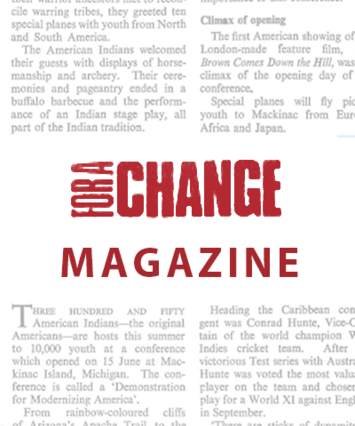Sometime this summer, somewhere in the world, a most unusual baby was born - the five billionth soul alive on Earth. I may get to know that baby rather well. That is if it happens to be my daughter Eorann.
Eorann arrived right in the middle of solemn celebrations held in London to mark the birth of the 'five billionth baby'. But, naturally, nobody knows precisely when - or where - that epoch-making child was born.
It is, of course, most likely that he or she arrived, like nine out of every ten babies born today, in the Third World. If so, the five billionth baby faces very different prospects from my daughter - though they are bound, inextricably, in the same general fate.
If it was born in Sierra Leone or Afghanistan, for example, it would be 20 times more likely than a British child to die in its first year of life. In any one of 50 other countries it would have less than a tenth of the chance of living to celebrate its first birthday next summer.
In most of those countries the baby could not expect to live far beyond my age, 40. During its first five years it is likely to suffer from malnutrition, with possibly permanent effects on its mental and physical development.
He or she would have only a 50 per cent chance of finishing primary school; less than a 25 per cent chance of even starting secondary school if a boy, less than a ten per cent chance if a girl; and would almost certainly grow up without access to safe drinking water or any form of sanitation.
And yet both Eorann and her Third World brother or sister will inherit the same Earth from their parents. It will be radically different from the one we have known.
For a start it will be much more populous. The first 'billion baby' did not arrive until the beginning of the last century. Since then the pace has gathered; the world's population reached two billion in the early 1920s, three billion about 1958, four billion by 1975.
By the time Eorann is 12 there will be another billion baby; by the time she is 24 another. If she waits as long as her parents, her first child could even be the eight billionth baby, born in the early 2020s.
The pace of the increase will itself put enormous pressure upon the world; but the strains will be much the greatest in the countries least able to bear them. For 95 per cent of the growth will be in Third World countries, and the fastest increase of all in the poorest of them.
These countries are already unable to meet the needs of their peoples. They face a future in which these needs will double, along with population, every 25 years.
If policies do not change by the time Eorann enters her teens, one third of the world's productive land will have been turned to dust, through overuse. A million species will have been destroyed forever, tearing great holes in the world's web of life. By the time she is my age almost all of the world's tropical rain forests - the world's most exuberant celebration of life, and vital regulators of the climate - will have disappeared.
Meanwhile, scientists now agree, great but incalculable changes in climate will be taking place - causing rising sea-levels and shifts in rainfall and agricultural patterns around the world. They will be the result of increased fossil fuel use and the release of gases from everyday products like aerosol sprays and fast food cartons.
Eorann and the other children born this year will inherit an even more unstable world than the one we know. There will be unprecedented pressure from the growing mass of the poor and hopeless. And the natural systems which sustain human society will be severely eroded.
The one hope is that, before Eorann is much older, the world will at last have decided to attack the root cause of these crises - poverty. For the dire poverty of more than half of humanity, in a world where there is enough for everyone's need, is not merely an historic evil as foul as the slave trade; it is also the driving force behind these escalating threats to the future.
It is poverty that fuels population growth; poor people choose to have many children because they need them. It is poverty that forces people to over cultivate marginal lands and to destroy the forests, when good land is denied them elsewhere.
The fight against poverty demands a new economic ethic, the economics of unselfishness. It has become an unfashionable concept. Over the past decade or so, the economics of selfishness, dressed up in fancy names, has increasingly taken hold. Its tenet - that one's duty is to look after oneself in the hope that the benefits will 'trickle-down' to the poor - salves consciences but little else. The trickle-down - if it happens at all - will not, and cannot, come fast enough.
On the other hand, there is good evidence from around the world that economic miracles take place when the needs of the poor are given priority. There are brief glimpses of overwhelming public support for economic unselfishness - as in the worldwide response to the African famine two years ago - in spite of a depressing relapse into voting with the pocket book.
And yet, as the great Christian economist Barbara Ward would remind us, 'In this age of ultimate scientific discovery the facts and our morals have come together to tell us how to live.' Eorann's future, and that of all the world's children, depends on whether we listen.


